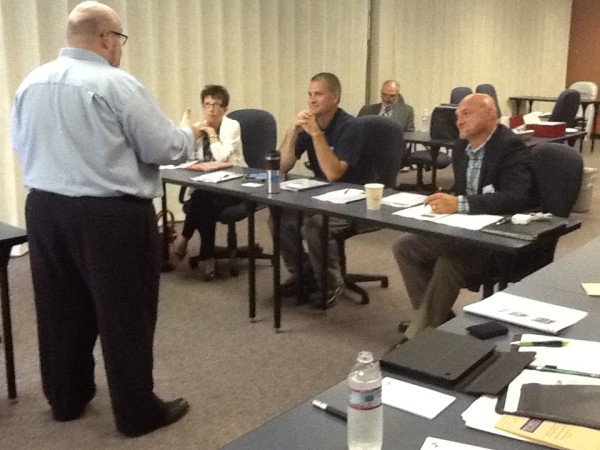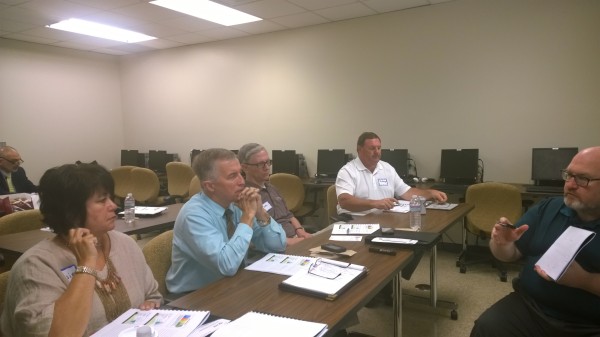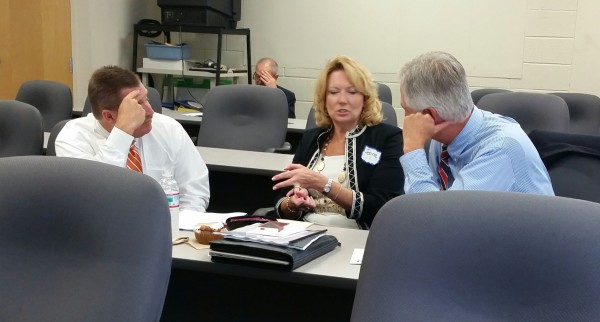
If there is a single concern shared by superintendents, it is fiscal sustainability while providing the best education for students. To address this concern, LEAN Frog provided a half day training course to small groups of superintendents in East, Middle and West Tennessee as part of the company’s partnership with the Tennessee Organization of Superintendents (TOSS) Leadership Institute. The course “Strategies for Fiscal Sustainability in Harsh Economic Times: Building School System Efficiency through Lean Six Sigma (LSS)” addressed how LSS could be applied to create fiscal sustainability in public education through reducing costs and increasing the value provided to students.
Discussing what he refers to as “the big squeeze”–pressure to excel in academics and at the same time having funding reduced, instructor Byron Headrick, MBB (LEAN Frog co-founder and president) emphasized, “Pressure can drive feverish action. The key is to take action based on what’s most important. We have to engage in the activities that produce the most value for our students, parents and communities.”

The course provided an overview of LEAN Frog’s “Five Lean Principles for Public Education,” addressed Value Stream Mapping and DMAIC–LSS approaches for innovating and problem-solving, and provided pointers for where and how to start applying LSS tools. As the superintendents learned about the tools, they engaged the instructor and each other about how to apply the tools to specific challenges they faced in their respective school systems. Technical terms like fishbone diagrams, SIPOC, and Failure Modes and Effects Analysis (FMEA) became more understandable as the concepts were applied to challenges ranging from substitute teacher shortages to rolling out new initiatives in transportation departments. The course concluded with DISC leadership training so the superintendents could have a basic understanding of facilitation and communication styles when working with teams to innovate or solve problems.
Barry Olhausen (TOSS, Assistant Executive Director) remarked “With the expert guidance of Byron, our Tennessee superintendents dug deep to discover how Lean Six Sigma could assist us in reducing waste, saving time and increasing efficiency in our non-instructional areas. The real payoff came with the realization that savings in these areas would help us in enhancing our instructional programs.”

After successful completion of the training exam, course participants will receive a yellow belt certification in Lean Six Sigma.
Have questions about applying Lean Six Sigma to improve fiscal sustainability in public education?
Need help implementing LSS tools in your school?
Have concerns about sustaining the improvements your team has already made?
Simply want to know why and how Failure Modes and Effects Analysis (FMEA) should be utilized in public education?
Feel free to contact LEAN Frog.